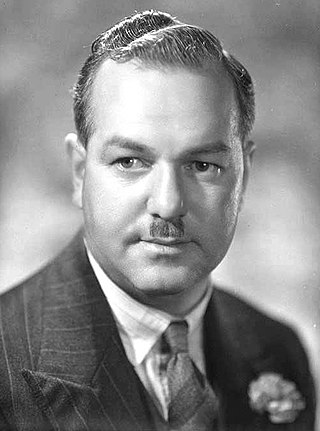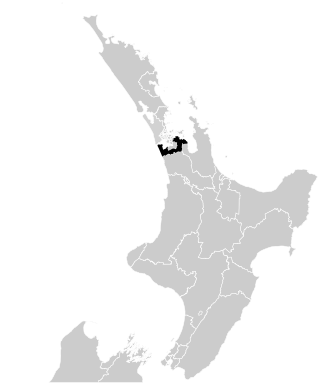Related Research Articles
The Alliance was a left-wing political party in New Zealand. It was formed at the end of 1991 by the linking of four smaller parties. The Alliance positioned itself as a democratic socialist alternative to the centre-left New Zealand Labour Party. It was influential throughout the 1990s, but suffered a major setback after its founder and leader, Jim Anderton, left the party in 2002, taking with him several of its members of parliament (MPs). After the remaining MPs lost their seats in the 2002 general election, some commentators predicted the demise of the party.

The 1984 New Zealand general election was a nationwide vote to determine the composition of the 41st New Zealand Parliament. It marked the beginning of the Fourth Labour Government, with David Lange's Labour Party defeating the long-serving Prime Minister, Robert Muldoon, of the National Party. It was also the last election in which the Social Credit Party won seats as an independent entity. The election was also the only one in which the New Zealand Party, a protest party, played any substantial role.

The 1996 New Zealand general election was held on 12 October 1996 to determine the composition of the 45th New Zealand Parliament. It was notable for being the first election to be held under the new mixed-member proportional (MMP) electoral system, and produced a parliament considerably more diverse than previous elections. It saw the National Party, led by Jim Bolger, retain its position in government, but only after protracted negotiations with the smaller New Zealand First party to form a coalition. New Zealand First won a large number of seats—including every Māori electorate, traditionally held by Labour. Its position as "kingmaker", able to place either of the two major parties into government, was a significant election outcome.

The Tauranga by-election was a by-election in the New Zealand electorate of Tauranga, a city in New Zealand's North Island. It took place on 17 April 1993, and was precipitated by the resignation from parliament of sitting MP Winston Peters. Peters, who had been increasingly at odds with his National Party colleagues, had resigned both from his party and from Parliament. He contested the seat as an independent.
Ann Batten is an Anglican priest, peace activist and a former New Zealand politician. She has been a member of various political parties and represented New Zealand First and Mauri Pacific in Parliament.

The 1931 New Zealand general election was a nationwide vote to determine the shape of the New Zealand Parliament's 24th term. It resulted in the newly formed coalition between the United Party and the Reform Party remaining in office as the United–Reform Coalition Government, although the opposition Labour Party made some minor gains despite tallying more votes than any other single party.

Richard John Northey is a New Zealand politician. He was an MP from 1984 to 1990, and again from 1993 to 1996. He served on the Auckland Council between 2010 and 2013, and is a member of the Labour Party.

The 1922 New Zealand general election was held on Monday, 6 December in the Māori electorates, and on Tuesday, 7 December in the general electorates to elect a total of 80 MPs to the 21st session of the New Zealand Parliament. A total number of 700,111 (87.7%) voters turned out to vote. In one seat there was only one candidate.

Eliza Ellen Melville was a New Zealand lawyer and politician. She was New Zealand's second female lawyer, and the first woman elected to a city council in New Zealand. She sat on the Auckland City Council for 33 years and was tireless in her work for women's organisations and causes, including in particular the National Council of Women of New Zealand. She believed in the importance of women participating fully and equally in public life, and was a key figure in the revival of the feminist movement in New Zealand after women's suffrage. She was one of the first women to stand for Parliament in New Zealand and ultimately stood (unsuccessfully) seven times.

Helensville was a New Zealand parliamentary electorate in the Auckland region, returning one Member of Parliament to the House of Representatives. The electorate was first established for the 1978 election, was abolished in 1984, and then reinstated for the 2002 election. The seat was won and held by John Key through his term as prime minister. Chris Penk of the National Party held the seat from the 2017 general election until its abolition in 2020, when it was replaced with the new Kaipara ki Mahurangi electorate.

New Lynn is a New Zealand parliamentary electorate, returning one member to the New Zealand House of Representatives. Deborah Russell of the Labour Party has represented the electorate since the 2017 general election.

Rodney was a New Zealand parliamentary electorate, returning one Member of Parliament to the House of Representatives. The last MP for Rodney was Mark Mitchell of the National Party. He held this position from 2011 until the electorate was replaced with Whangaparāoa in 2020. Mitchell stood for and won that seat.

Tāmaki is a parliamentary electorate, returning one Member of Parliament to the New Zealand House of Representatives. The electorate is named after the Tamaki River that runs immediately east of the seat. The electorate is represented by Simon O'Connor, who became the National Party candidate after Allan Peachey withdrew from the 2011 election for health reasons; Peachey died before the election.

John "Jock" Skinner Stewart was a New Zealand politician of the Labour Party.
Peter Ian Wilkinson was a New Zealand politician of the National Party.

The Hunua electorate existed three times for the New Zealand House of Representatives beginning in 1978, based at the south end of the Auckland urban area, and named for the Hunua Ranges. It covered different geographical areas over those periods. The electorate was last represented by Andrew Bayly of the National Party before its dissolution in 2020.
The New Zealand Liberal Party was a classical-liberal party that was formed to stand candidates in the 1963 general election. It was defunct after the 1966 general election, which it did not stand candidates for.

The Tamaki by-election 1992 was a by-election held in the Tāmaki electorate during the 43rd New Zealand Parliament, on 15 February 1992. It was caused by the resignation of incumbent MP Sir Robert Muldoon and was won by Clem Simich with a majority of 1,252. The by-election was also notable as the first contested by the recently formed Alliance Party, and for their success in coming second ahead of the Labour Party.

The Raglan by-election of 1927 was a by-election held in the Raglan electorate during the 22nd New Zealand Parliament, on 29 September 1927. It was caused by the death of incumbent MP Richard Bollard of the Reform Party. Despite being a local contest it quickly became a national contest in miniature due to growing discontent with the Reform Government.

Maria Josina Elisabeth "Marja" Lubeck is a New Zealand politician and Member of Parliament in the House of Representatives for the Labour Party.
References
- ↑ "Women form party". The Press . 23 March 1982. p. 6.
- ↑ Dann, Christine (1985). Up from Under: Women and Liberation in New Zealand, 1970–1985. Bridget Williams Books. p. 48. ISBN 9781877242731 . Retrieved 21 May 2021.
In 1981, the New Zealand Women's Political Party was organised by feminists who wanted an independent political voice for women. The WPP aims to stand candidates in every electorate and to push women's issues. The WPP was caught on the hop by the snap election in 1984 — it remains to be seen whether it will have any impact on the 1987 election.
- 1 2 3 Watson, Helen (November 1984). "A Party Line" (PDF). Broadsheet. pp. 31–34. Retrieved 21 May 2021.
- ↑ Dalziel, Raewyn. "Political organisations". NZHistory. Retrieved 21 May 2021.